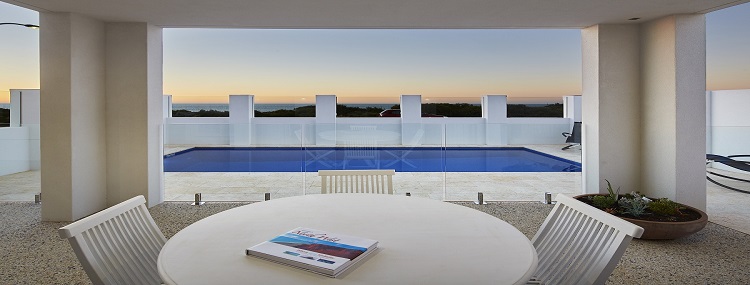Which Type Of Pool Is The Easiest To Maintain?

Maintaining Different Types of Inground Swimming Pools
Probably the most common question asked by people considering a swimming pool, is ‘Which type of pool is the easiest to maintain?’
People want to maximize their swimming experience, and there’s no joy in spending hours slaving over a pool. A swimming pool is to be enjoyed, so it’s an important question to want to know how much maintenance and upkeep is required on a regular basis.
New technology and advances mean swimming pools are more versatile and durable than ever before, but one type of pool always wins hands down, and that’s a fibreglass pool.
Minimal Cleaning
Both a concrete pool and vinyl liner pool are porous, which means they absorb more water and algae, so you’ll get more stains. Green and black algae are both easily attracted to this type of surface and can be extremely stubborn and difficult to eradicate.
You’ll need a steel brush to scrub the plaster hard, and while it will improve your muscles, it won’t benefit you in any other way. A fibreglass pool has a unique gel coating, and because it is smooth and non-porous, algae won’t stick, which means less brushing.
Fewer Repairs
Fibreglass pools require very few fixes during their lifetime. Concrete pools may have to be patched or bonded if cracks appear. Vinyl lined pools can easily get punctured or damaged with sharp objects, especially if the lining is thin. While the damage can be easily fixed, it can be a recurring problem.
Fewer Chemicals
Less harsh chemicals are required in a fibreglass pool, and that makes for a better swimming environment and an all-round more enjoyable pool experience.
With cleaner water, you can reduce the amount of filtration required, which will also bring down electricity costs. A concrete pool traps more bacteria which can affect the chemical balance of your pool, so you’ll be stocking up on chemicals and filtering the water more often.
No Resurfacing
Fibreglass pools will never need resurfacing whereas concrete pools will require a resurface every ten to fifteen years to keep the moisture out, so the pool remains robust and durable.
A concrete pool will also need an acid wash every five years to remove a thin layer of plaster so it can wipe out any algae and stains. It’s a messy and smelly process and is probably best left to an expert.
Warmer Water
In swimming pool circles, most people know that the water in fibreglass pools stays warmer, which is a real bonus. This is due to the fibreglass shell and liner which is relatively thin, resulting in the pool heating up quickly and retaining the heat for a more extended period. Concrete absorbs heat so requires a more significant amount of energy to heat up and retain the warm water.
If you’re considering a new fibreglass swimming pool, why not investigate the range at Factory Pools Perth? They boast a lifetime structural and surface guarantee and pools are made at our Forrestdale facility in WA. From as little as $16,000, our pools are affordable – so make sure you visit one of our showrooms today.

